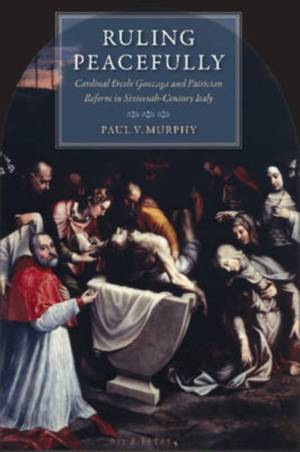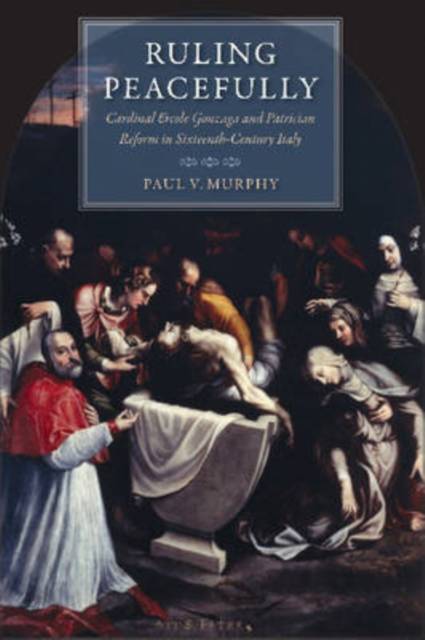
Bedankt voor het vertrouwen het afgelopen jaar! Om jou te bedanken bieden we GRATIS verzending (in België) aan op alles gedurende de hele maand januari.
- Afhalen na 1 uur in een winkel met voorraad
- In januari gratis thuislevering in België
- Ruim aanbod met 7 miljoen producten
Bedankt voor het vertrouwen het afgelopen jaar! Om jou te bedanken bieden we GRATIS verzending (in België) aan op alles gedurende de hele maand januari.
- Afhalen na 1 uur in een winkel met voorraad
- In januari gratis thuislevering in België
- Ruim aanbod met 7 miljoen producten
Zoeken
Ruling Peacefully Cardinal Ercole Gonzaga and Patrician Reform in Sixteenth-Century Italy
Cardinal Ercole Gonzaga and Patrician Reform in Sixteenth-century Italy
Paul V Murphy
Hardcover | Engels
€ 128,95
+ 257 punten
Omschrijving
Raised in the splendid court of Mantua, wealthy even by the standards of Renaissance cardinals, the patron of artists and scholars, the father of numerous children, an active participant in Italian and European politics as regent of the Duchy of Mantua, Cardinal Ercole Gonzaga (1505-1563) was in many respects a typical Renaissance prelate from a noble family. Nevertheless, in the course of his life he also exhibited a real commitment to reform of the Church and gave serious attention to the religious debates of his day. He reformed the diocese of Mantua, befriended reformers both Catholic and Protestant, and served as papal legate to the Council of Trent. Ruling Peacefully provides the first in-depth study of this influential and paradoxical figure. Gonzaga emerges as a complex personality whose interests as the representative of a northern Italian ruling family could just as easily lead him to support reform in the Catholic Church as to hinder it. His career exemplifies much of the history of Italy and the Catholic Church in an era of uneasy transition. The process of change that the Church underwent in the sixteenth century only gradually provided theological clarity. This lack of definition exhibited itself not only in theology but also in the lives and works of individuals, including the leaders of the Church. The career of Ercole Gonzaga, who does not fit easily into the categories of spiritual reformer, or intransigent inquisitor, or unreformed noble prelate, challenges stereotypical descriptions of Italian prelates and may represent the age more fully than any of these ideal types. This intermingling of the worldly and the religious suggests that he may best be understood as a patrician reformer who manifested the cultural life of late Renaissance Italy, the call for reform, and the interests of a powerful ruling family.
Specificaties
Betrokkenen
- Auteur(s):
- Uitgeverij:
Inhoud
- Aantal bladzijden:
- 316
- Taal:
- Engels
Eigenschappen
- Productcode (EAN):
- 9780813214788
- Verschijningsdatum:
- 1/04/2007
- Uitvoering:
- Hardcover
- Formaat:
- Genaaid
- Afmetingen:
- 150 mm x 208 mm
- Gewicht:
- 571 g

Alleen bij Standaard Boekhandel
+ 257 punten op je klantenkaart van Standaard Boekhandel
Beoordelingen
We publiceren alleen reviews die voldoen aan de voorwaarden voor reviews. Bekijk onze voorwaarden voor reviews.









